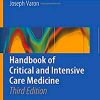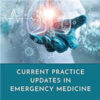The Use of Venous Doppler to Predict Adverse Kidney Events in a General ICU Cohort
ccforum.biomedcentral.comThis study indicates that portal and hepatic flows may be clinical useful tools to help identify patients at risk for renal injury. It is likely that they are indicative of elevated right atrial pressure causing venous congestion, perhaps identifying patients in whom fluid resuscitation should be more limited. Further research is needed to evaluate the feasibility and utility of using these metrics as part of a comprehensive resuscitation strategy.
This study demonstrates that obtaining right-sided venous flow patterns is feasible and predicts important clinical outcome in critically ill patients. To our knowledge, this is the first prospective observational study in general ICU population assessing the utility of hepatic, portal and intra-renal vein Doppler. It is also the first to compare different venous Doppler metrics on major adverse kidney events at 30 days.
Multivariant regression models both found that hepatic and portal venous Doppler flow changes are associated with an increase in rate of MAKE-30 events. Hepatic venous Doppler remained statistically robust even in patients without RV dysfunction, suggesting these findings are not just a marker of right heart failure. We did not find that renal Doppler was predictive of MAKE-30 events.

















